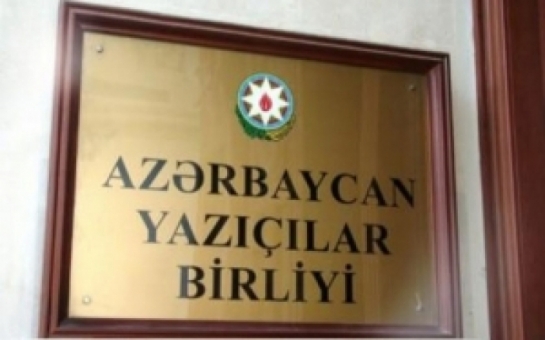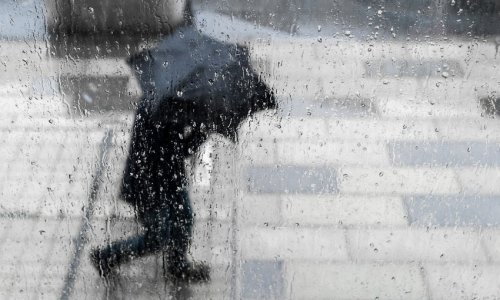Maharram Zeynalov
Writers' Union (WU) is a state organization for creative people to honor and respect . But few people know the real problem that faced the WU and that , alas, has been implemented so far . Few people know what the real damage inflicted these unions of writers , artists, composers, literature, painting , and music.
The Union was created back in '34, at the initiative of the head of the just formed NKVD (Stalin's secret police) Henrich Yagoda. At that time, throughout the Soviet Union, there were many art groups, which prevented the party and violated the order and centralization of the country, not only in the authorities but also in thoughts.
The idea was to abolish all literary circles , or to drive them under the cozy wing of the Union. Important part of the structure of the joint venture was - it completely mimicked the structure of the party - the secretariat , board, congresses and other wonderful attributes. A unified method for all representation of reality became the so-called Socialist Realism.
Art was done by state-controlled unions in several directions.
The WU became a well-organized and controlled "power vertical" organization, i.e., in fact part of the repressive apparatus, which started work at the full extent in less than three years after the creation of the unions. The WU had a function of control, i.e. spying for the police. If famous cultural figures became wicked and the regime decided they were "guilty," the WU organized their persecution.
In Soviet republics such persecution was directed against those authors whose work was of national character. In Azerbaijan, they were accused of "Pan-Turkism" and "Pan-Islamism."
The WU played a visible role in the murder of Mikail Mushfig.
In March '37 he made his Rubaiyat to the plenum of the WU in Azerbaijan and in April these poems were published in the Literary Gazette. And in the next issue of the same newspaper came out sharp criticism or rather the indictment of the poet. Many people then knew then that such criticism was actually a death sentence.
In January of the following year he was convicted as an "enemy of the people" and a month later he was executed.
Similarly, died in a Siberian prison from diseases our great playwright, poet and humanist Huseyn Javid. He was a strong man and did not fully acknowledge his guilt and kept extremely brave. Also shot in 1937 was Ahmed Jawad and many other intellectuals, the actual color of the nation.
But there was another, less obvious, but also enormous damage to art and literature, in particular caused by the creation of the WU. Many literary critics and just educated people today say that in the period of Stalin's rule masterpieces of literature were not practically created. Music was less ideological, but it also suffered. Musical experiment was not welcome . In a difficult situation was the life of the great and probably the most important musical experimenter of the time Dmitri Shostakovich. Through "special" people in the literature and through directives coming from the "top" he was repeatedly told: "Your music is incomprehensible to the people."
In Russia, this time completely disappeared great Russian poetry that blossomed decades earlier. Poets of those times did not already live from hand to mouth, and they received salaries and apartments, but they did not write.
The most terrible thing happened in painting. So prized by art historians today Russian avant-garde was completely destroyed as a genre or "as a class." There was no longer any new Malevich (he died in 1935) and no new Kandinsky (emigrated). Abstractionism for many decades lived in basements and was not recognized by "official art " and the implementing mechanism of this action was the Artists' Union , which did not give space for exhibitions.
Another aspect of damage to art, was psychological . Living in an atmosphere of imposing the "right" method, the fear of death under Stalin, poverty and involuntary treatment after Stalin - all this was not conducive to the development of a writer or an artist or a director as a free person. Eloquent example in this sense was the first chairman of the Writers' Union, Maxim Gorky, who was strongly discharged from abroad to take this office. His only work at the time was Life of Klim Samgin, which was never finished, as the hero of this book already lived those same fateful 30th. Perhaps Gorky just did not want to lie. But he created nothing more in those years - neither genius nor mediocre.
Someone might remember the wonderful Soviet cinema, but remember those years and the conditions under which it was created. Start with the fact that the 60s - 70s accounted for flourishing cinema worldwide, finding new techniques and artistic methods. And most importantly, according to numerous biographies of writers, directors, actors, we can clearly see that the best of what was done then was done not because of, but in spite of, and the WU did not have to do with it.
Huge damage is still applied today through the system of state subsidies in literature, through the WU and the issuance of apartments, scholarships and fees to the best of writers. In other words, in this way the government continues to grip a person by the place, by which the artist Peter Pavlensky symbolically nailed himself to the Red Square a few days ago.
ANN.Az











